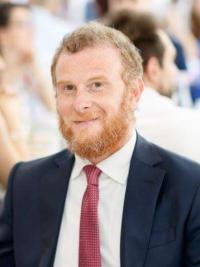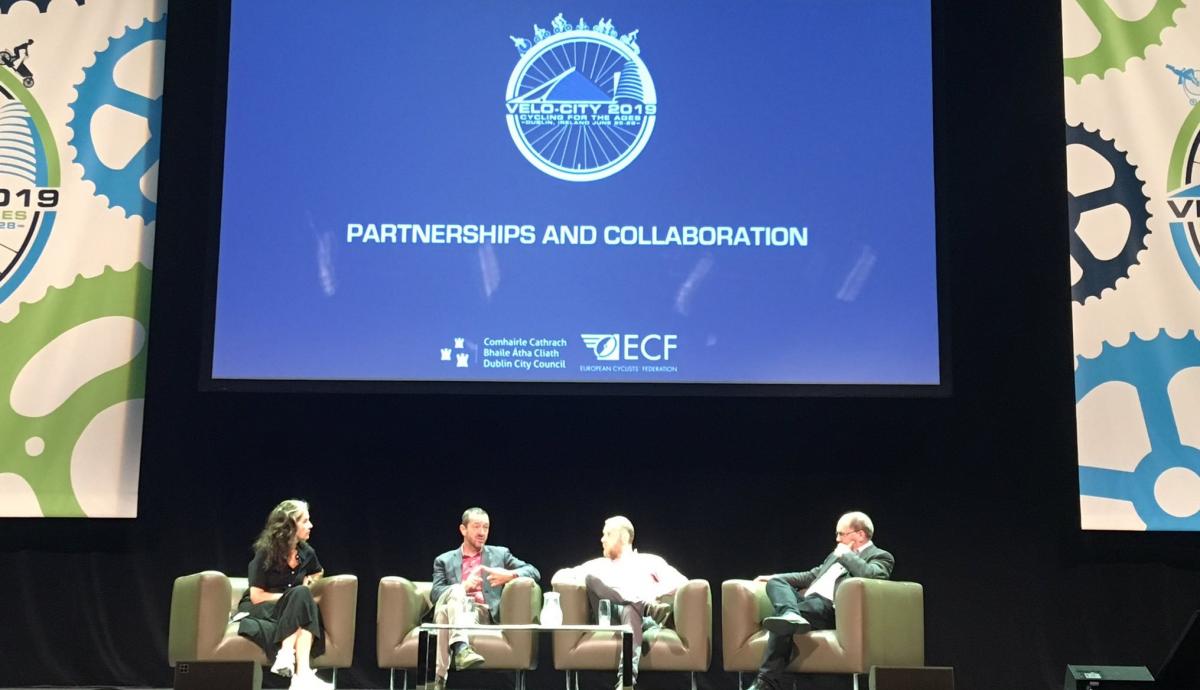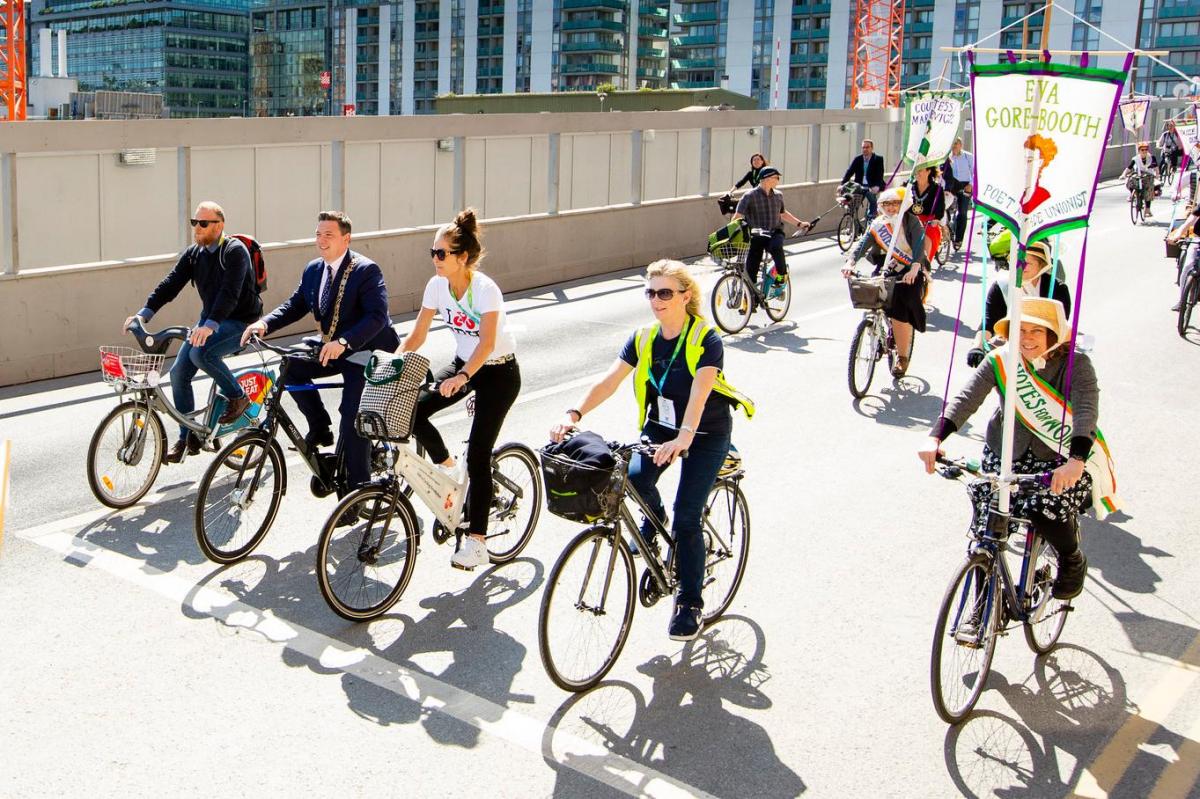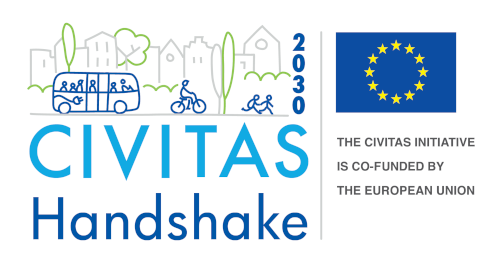The Handshake Roll
The Handshake Roll is a series of blog posts by our Handshake participants and connected parties, published here on the news pages of Handshake.
This is the second of three reflection pieces from Handshake on this year's Velo-city conference, following our overview of the event here.
The person with the pen is Francesco Iacorossi, who works for the City of Rome's mobility department (Roma Servizi per la Mobilità).
3 minute read
An Italian, an Irishman, a Dane and a Brit are sitting next to each other in a conference room in front of over 500 delegates…No, it is not one of those old jokes.
Instead, it was the set-up of the “Partnership & Collaboration” session held during the Velo-city 2019 Conference in Dublin (Ireland) on Friday 28 June (pictured below).
Let us go in order though; this year was my first at Velo-city and I landed in Dublin with a “bag full of chips” as the locals would say, having been appointed by BYCS as the Bicycle Mayor of Rome only a few weeks before.
On top of that, I was the first Italian ever to be selected as a Velo-city keynote speaker. I must admit it, I was very excited to present Handshake’s innovative approach and the work that Rome is doing as part of the project (PDF).
My personal relationship with Dublin has progressively grown since my first visit back in 2000. In that time, the Irish capital has become a cosmopolitan city without losing its captivating cultural heritage and warm hospitality.
Cycling has huge potential in Dublin. Yet the lack of a wide cycling network and the oppressive presence of cars, coaches and lorries means that this remains unfulfilled.
Despite all that, cyclists are literally everywhere and that's a clear statement of intent by local cyclists: this must be taken into account and placed high on the local political agenda.
The intellectual honesty shown during the plenary debate by Brendan O'Brien, head of the mobility and traffic management division of Dublin City Council (DCC), was a tangible indication of the real commitment by DCC to move cycling forward in the city, especially after the critical comments aired by some foreign delegates and local user groups.
I opened the plenary focusing on how to establish ways to develop tools and activities to share cycling knowledge and good practice. Reclaiming the streets and a cultural change have to be non-negotiable – the conditio sine qua non - in the process.
All the speakers agreed that we do not need 40 years (as has been the case in Amsterdam or Copenhagen) to achieve our common goal. Instead, 10-15 years is a plausible time in which to do so - or even less, as stated in Handshake.
Special contributions then came from Chris Boardman, Greater Manchester's Cycling and Walking Commissioner and Karina Vestergård Madsen, Copenhagen’s Mayor of Technical and Environmental Affairs.
They both focused on the importance of consistent national and local funding, as well as proper infrastructure. Participation also emerged as a major tool to keep communities part of our journey.
Many attendees described our plenary as a “fine example of honesty, quality and consistency”. That shows hard work always pays off, although we need to ensure that political courage and investment keep pace with our dreams.
How else can we create the cycle-friendly cities we really want?
Buona fortuna to all of us
Go gcuire Dia an t-ádh org
Amsterdam is playing the part of a Mentor to Rome in Handshake, and their perspective as a leading cycling city will be published on these news pages in the coming weeks.



